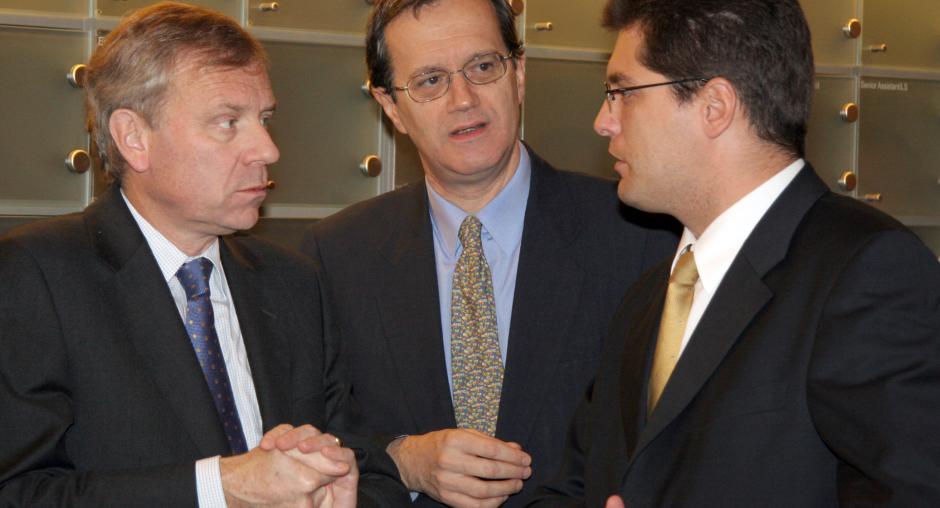NATO Secretary General calls for closer links with OSCE

VIENNA, 3 November 2005 - Addressing representatives of the 55 participating States of the Organization for Security and Co-operation in Europe today, NATO Secretary General Jaap de Hoop Scheffer called for the two organizations to translate their converging approaches to security into ever-closer relations and practical co-operation.
"In NATO, the OSCE will find a strong and co-operative partner", he said. "NATO has broadened its agenda and it has done so in line with the objectives shared by the OSCE."
De Hoop Scheffer's speech to the Permanent Council covered many ways in which both organizations were evolving along similar lines, in order to meet the changing security environment and new challenges of the 21st century.
He also described several examples of complementary activity for the security of Europe - including arms control, border management, conflict prevention and combating terrorism in countries of the Balkans - as well as further afield in Afghanistan, where the OSCE supported democratic elections relying on NATO protection.
"Like the OSCE, NATO has had to respond to an entirely new set of challenges and demands. And like the OSCE, the Alliance could not rest on past successes, but had to embrace change and transformation."
He said a key element in NATO's transformation was to build stronger relations with other international institutions: "The reason is clear. Today's security challenges far exceed the ability of any individual nation or institution. And we can only hope to get a grip on these challenges by working together ... this is why we are very interested in extending our co-operation with the OSCE as well."
In his former post as Dutch Foreign Minister in 2003, de Hoop Scheffer had been OSCE Chairman-in-Office during the Netherlands Chairmanship.
"Our Chairmanship culminated in the adoption of the OSCE Strategy to Address Threats to Security and Stability in the 21st Century. And I am particularly pleased that strategy has formed the basis for the comprehensive review of the OSCE's policies, strategies and working methods these last few years. And I am convinced the OSCE Ministerial Council, in Ljubljana next month, will be another important step on the road to reform of the OSCE", he said.
He praised the work of the current Chairman-in-Office, Slovenian Foreign Minister Dimitrij Rupel: "He is doing an excellent job in moving the agenda of the OSCE forward."
"A more effective OSCE is in itself a major gain for the security and long-term stability of this continent. But there is more. A more effective OSCE will also be a stronger partner for the Atlantic Alliance in tackling security challenges in Europe and even beyond."
"Over the past 10 to 15 years, Europe has made great strides, but it still remains unfinished business. The OSCE will have to continue to play a major role if our common goal of a continent that is whole, free and secure is to be realised", the NATO Secretary General added.
